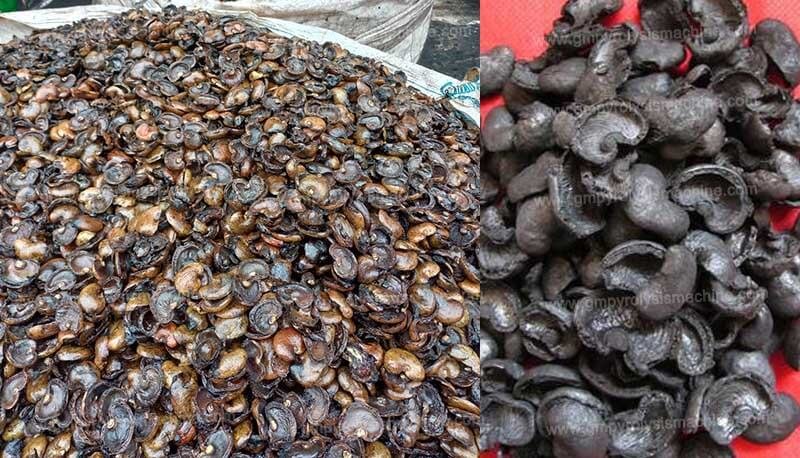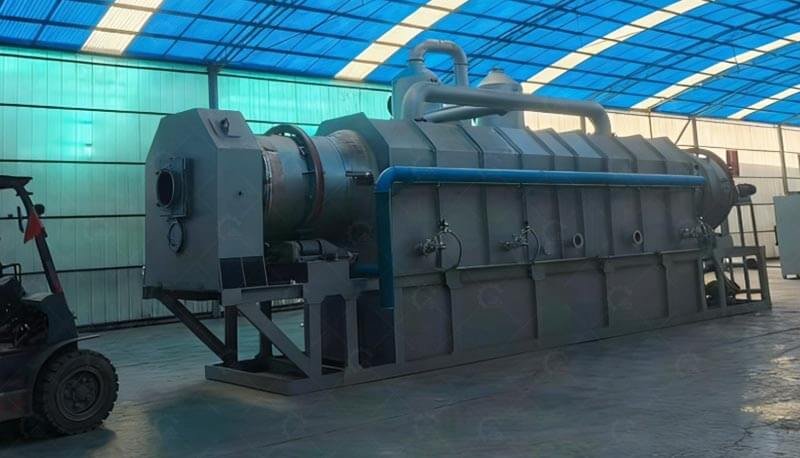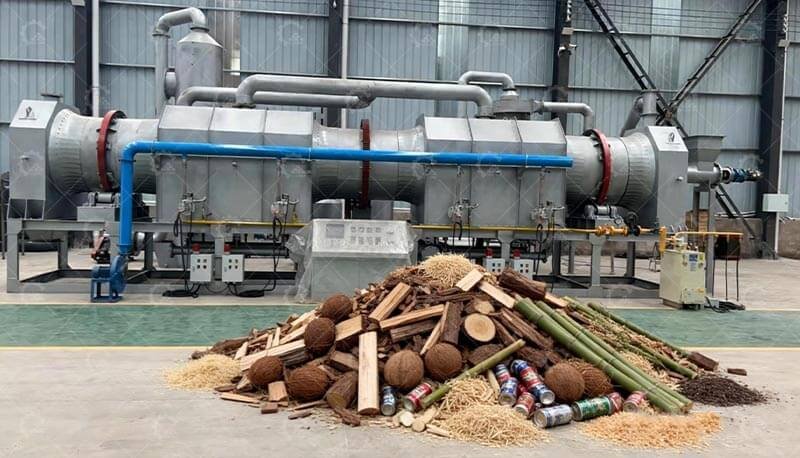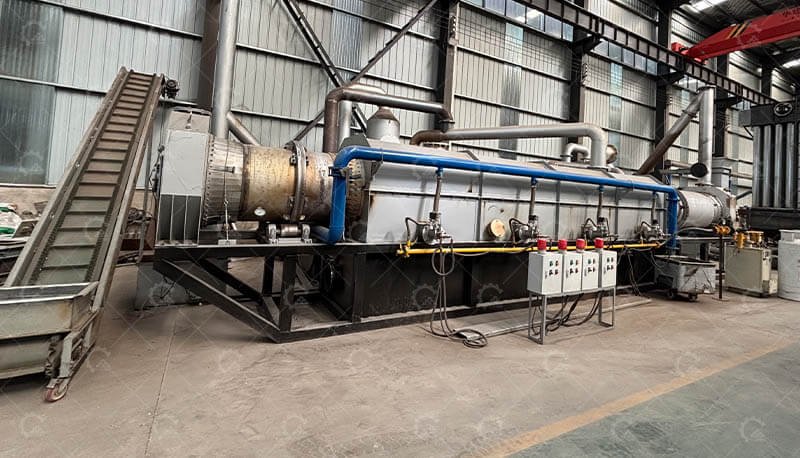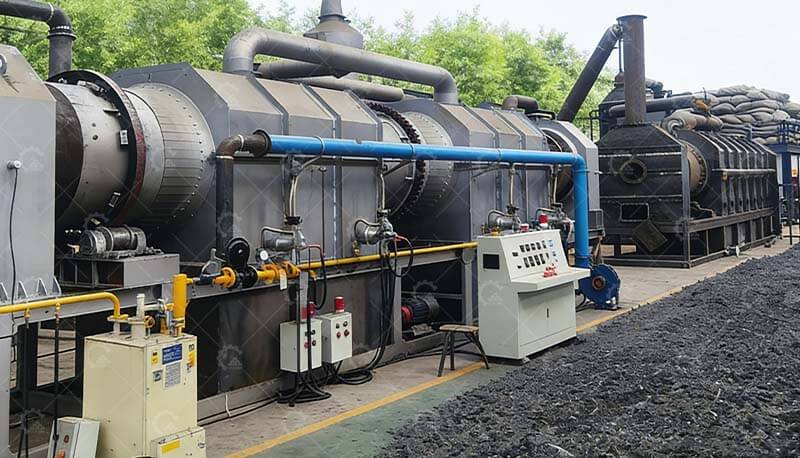The Rise of Cashew Shell Biochar Carbonization
The global biochar market is projected to exceed $3.3 billion by 2028, driven by demand for sustainable fuel and soil enhancers. Cashew nut shells, a byproduct of the $7.4 billion cashew industry, are now a goldmine for eco-conscious entrepreneurs. A Cashew Nut Shell Charcoal Making Machine transforms this waste into high-value biochar, offering ROI potential of 20–35% annually.
1. What Is a Cashew Nut Shell Charcoal Making Machine?
This specialized equipment uses pyrolysis—a high-temperature, oxygen-free process—to convert cashew shells into biochar. Key components include:
Feeding System: Automates raw material input (e.g., crushed shells).
Pyrolysis Reactor: Heats shells to 400–600°C, releasing combustible gases.
Condensation Unit: Converts gases into bio-oil and wood vinegar.
Emission Control: Filters harmful particulates to meet EPA/CE standards.
Modern Continuous Carbonization Pyrolysis Machines operate non-stop, processing 1–5 tons/day with minimal downtime, unlike batch systems.
2. Benefits of Cashew Shell Biochar Production
Waste-to-Wealth: 1 ton of cashew shells yields 300–400 kg of biochar, priced at $500–$800/ton for agricultural or fuel use. (This data is for reference only)
Carbon Credits: Biochar sequesters CO2, qualifying businesses for carbon offset programs.
Byproduct Revenue: Bio-oil ($0.8–$1.2/liter) and wood vinegar ($2–$5/liter) add revenue streams. (This data is for reference only)
3. Cost Breakdown: Cashew Shell Carbonization Furnace Business Setup
A. Equipment Costs (2025 Prices)
Small-Scale Machines (1–2 tons/day): $18,000–$35,000. (This data is for reference only)
Mid-Capacity Systems (3–5 tons/day): $45,000–$80,000.(This data is for reference only)
Industrial Plants (10+ tons/day): $120,000–$250,000+ (includes automation and emission scrubbers). (This data is for reference only)
B. Operational Expenses
Raw Materials: Cashew shells cost $20–$50/ton in India, Vietnam, or Brazil. (This data is for reference only)
Energy Consumption: Continuous pyrolysis systems recycle 70% of generated heat, cutting energy costs to $10–$20/ton. (This data is for reference only)
Labor: Fully automated lines require only 2–3 operators ($800–$1,500/month). (This data is for reference only)
4. Choosing a Continuous Carbonization Pyrolysis Machine Manufacturer
Manufacturers like Gunama Machinery offer:
Customization: Adjust reactor sizes for cashew shells’ high oil content (15–20%).
Certifications: CE, ISO, and EPA compliance for global exports.
After-Sales Support: Onsite installation, spare parts (e.g., heat-resistant alloy reactors), and 1–2-year warranties.
5. ROI Analysis for 2025
A $50,000 machine processing 3 tons/day generates(This data is for reference only):
Daily Revenue:
Biochar: 1 ton x $600 = $600(This data is for reference only).
Bio-oil: 200 liters x $1 = $200(This data is for reference only).
Total: $800/day(This data is for reference only).
Monthly Profit (After Costs): $15,000–$18,000(This data is for reference only).
Break-Even: 8–12 months(This data is for reference only).
Government incentives, like India’s National Biofuel Policy or EU’s Circular Economy Action Plan, offer 10–25% subsidies on machinery.
6. Future Trends: Why Invest in 2025?
Soil Amendment Demand: The agricultural biochar market is growing at 14.5% CAGR.
Waste Regulation: Countries like Nigeria and Indonesia now mandate cashew shell recycling.
Tech Advancements: AI-driven pyrolysis machines (e.g., IoT temperature control) boost efficiency by 20%.
Conclusion: Build a Sustainable Cashew Shell Biochar Empire
A Cashew Nut Shell Charcoal Making Machine isn’t just eco-friendly—it’s a high-yield asset. Partner with reputable Continuous Carbonization Pyrolysis Machine manufacturers to secure durable technology, and leverage cashew-producing regions’ low-cost raw materials.

